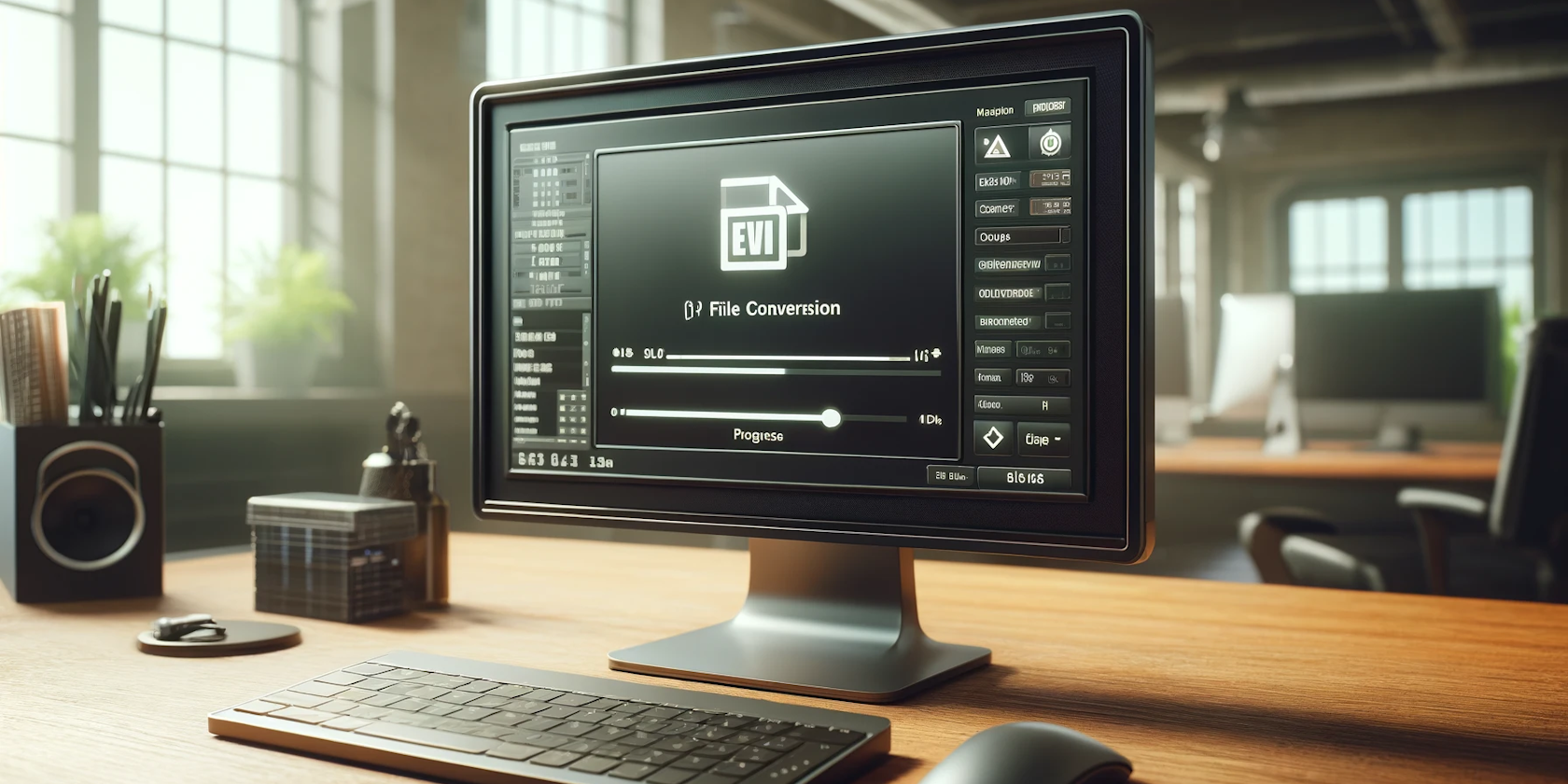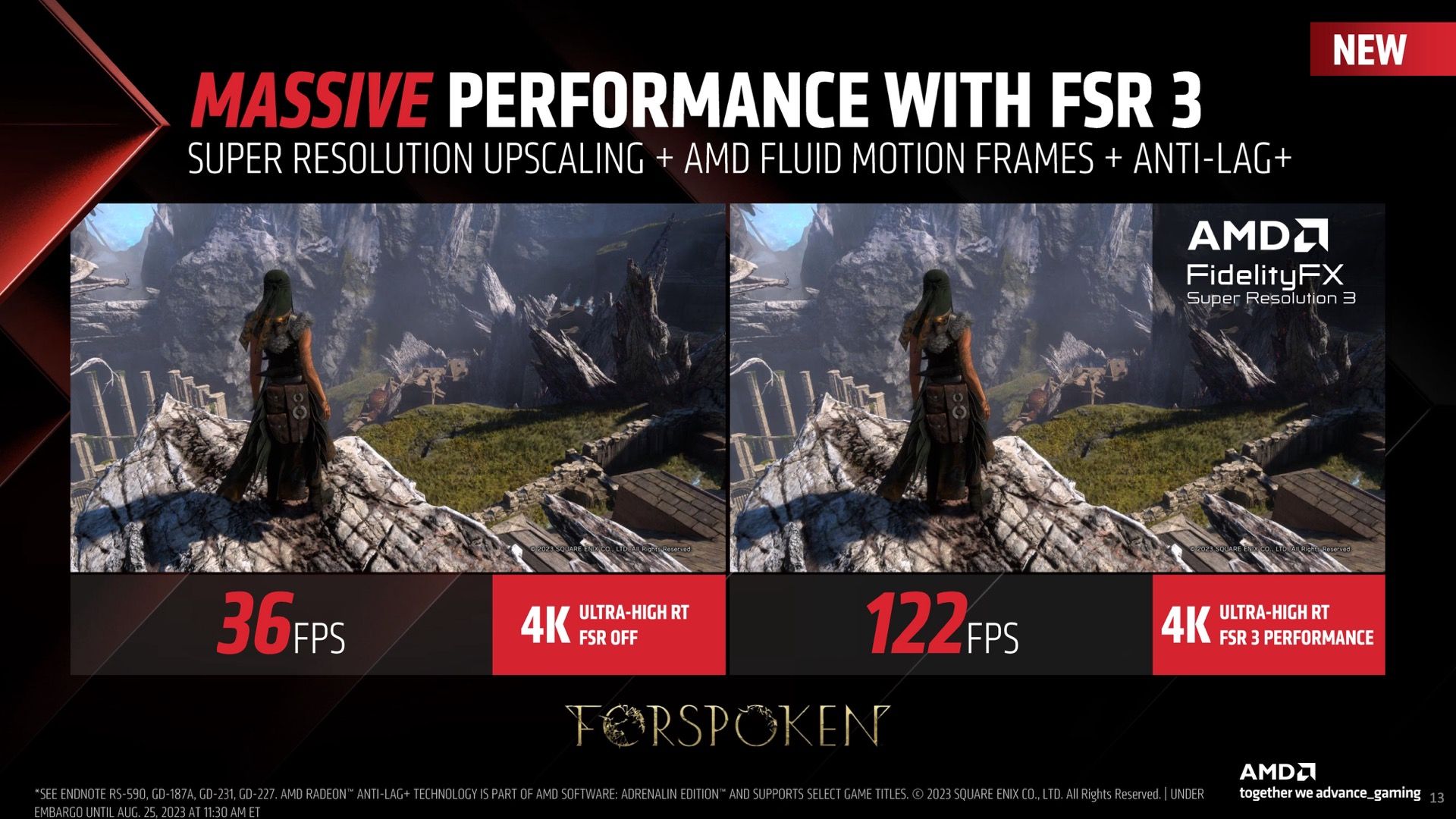
Will AMD's New FSR 3 Overtake NVIDIA’s Advanced DLSS Tech?

Will AMD’s New FSR 3 Overtake NVIDIA’s Advanced DLSS Tech?
Key Takeaways
- AMD has announced FSR 3, the latest version of its FidelityFX Super Resolution software, promising great improvements in performance and image fidelity compared to its predecessor.
- FSR 3 is still an open technology that can run on any modern GPU, including AMD, Intel, and NVIDIA. It introduces new features like “Fluid Motion Frames” to improve frame rates.
- While FSR 3 seems to be catching up to NVIDIA’s DLSS 3, it doesn’t employ AI tricks like DLSS 3.5. FSR 3 may produce similar framerate gains but with less detail than DLSS. If you have an AMD GPU or a non-DLSS supported GPU, using FSR 3 is recommended.
Game upscaling is the future of game graphics. Many were initially skeptical about the concept, and with good reason, but over time, we’ve learned to embrace it—especially as it has improved over time. DLSS has been a game-changer on NVIDIA’s GPUs, and AMD’s own FSR solution is seen as inferior by many.
However, that doesn’t mean AMD has given up on FSR. Far from it, in fact. At Gamescom 2023, alongside the launch of its new GPUs, AMD also announced FSR 3, which promises great improvements over its predecessor in performance and image fidelity. It’s a major upgrade, but can it compete with NVIDIA DLSS 3.5?
What Is AMD’s FSR 3?
You might already know what FSR, or FidelityFX Super Resolution , is, but we’ll give you a quick refresh if not. FSR is software that takes games rendered at a lower resolution and upscales them to higher ones. It’s AMD’s competition to NVIDIA’s DLSS , boosting in-game visuals and frame rates, and FSR 3 is the latest version of this technology. AMD announced the new tech right as it announced its newest GPUs, the Radeon RX 7800 XT and the Radeon RX 7700 XT .
FSR 3 isn’t fundamentally changing the way FSR works. It’s still an open technology that doesn’t require proprietary hardware and can run on any modern GPU, AMD or not. What’s changing here is how good its results look and how fast games will run with FSR 3.

Image Credits: AMD
AMD is employing a series of new party tricks to further improve its experience, including one called “Fluid Motion Frames.” Essentially, it’s a competitor to DLSS’s Frame Generation, which generates and fits new frames between actual rendered frames, dramatically improving your frame rates. Fluid Motion Frames will be supported on games that support FSR 3 and in all DirectX 11 and 12 games, as long as you have a Radeon 7000-Series GPU.
FSR 3 will be available on all Radeon RDNA cards (5000-Series, 6000-Series, and 7000-Series), Intel Arc GPUs, and NVIDIA RTX GPUs.
How Does FSR 3 Compare to DLSS 3.5?
Of course, the big elephant in the room is how AMD’s FSR 3 fares compared to its direct competitor,NVIDIA’s recently updated DLSS 3.5 . NVIDIA announced its latest technology just days before FSR 3, as basically a drop-in upgrade for DLSS 3-compatible cards. DLSS 3.5’s biggest upgrade is how it leverages the power of AI to help with its upscaling, employing a model called Ray Reconstruction to create high-quality ray-traced images.
FSR 3 doesn’t really employ any AI tricks. It’s still algorithm-based, which seems to work for AMD now. The thing about FSR is that it seems to be catching up to DLSS 3 rather than DLSS 3.5. Its flagship feature, Fluid Motion Frames, is just an answer to Frame Generation, which was introduced with DLSS 3.
As for how well it works compared to its direct competitor, we’ll have to see FSR 3 in use in-game to compare properly. We’d expect things to remain pretty similar to how they are, with FSR producing similar framerate gains but with less detail than DLSS.
Should You Use FSR 3?
If you have an AMD GPU or another GPU that doesn’t support DLSS, using FSR is a no-brainer. It can greatly help your framerates, especially if you have a higher-resolution monitor. FSR 3 is a great improvement to an already great technology, and you should give it a spin as soon as it’s available. AMD says that new titles Forspoken and Immortals of Aveum will get support in September, with other games following suit.
FSR 3 is a Big Improvement
When NVIDIA added Frame Generation to DLSS 3, it was a big breakthrough. By generating extra frames from scratch, your frame rates could be effectively doubled. With this addition to FSR 3, you should see the same kind of gains, and we’re excited to see how it fares in real life.
- Title: Will AMD's New FSR 3 Overtake NVIDIA’s Advanced DLSS Tech?
- Author: William
- Created at : 2024-08-31 19:17:32
- Updated at : 2024-09-01 19:17:32
- Link: https://games-able.techidaily.com/will-amds-new-fsr-3-overtake-nvidias-advanced-dlss-tech/
- License: This work is licensed under CC BY-NC-SA 4.0.

